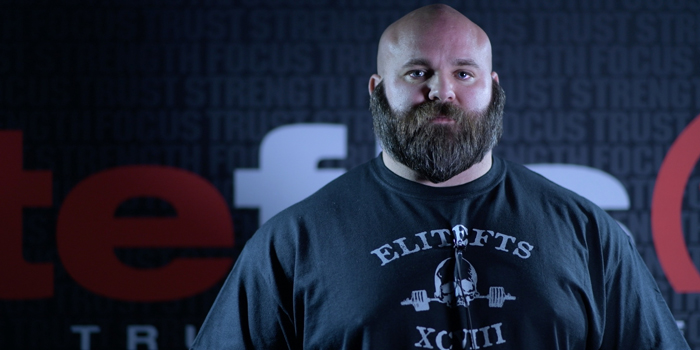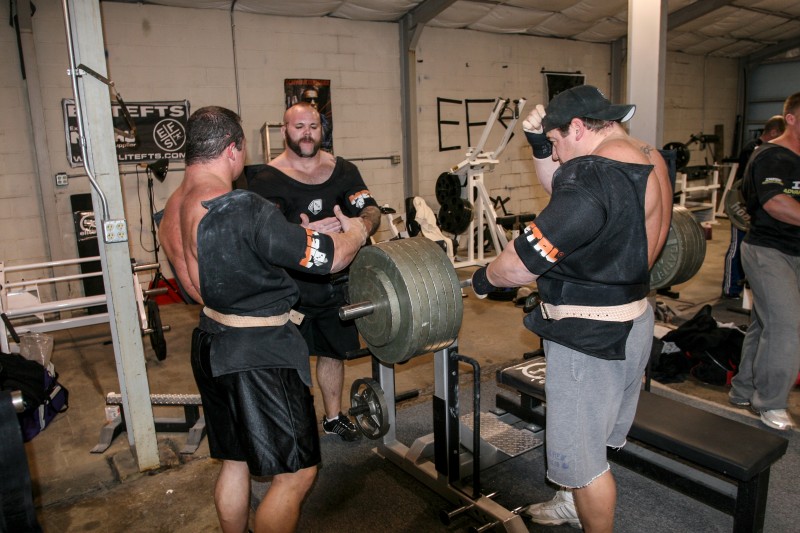
Pretty much every great success story is followed by the question, “How did you do it?” In almost every case, hard work, determination, and sacrifice typically lie within the answer. The specific element that I want to discuss in this article is sacrifice. By definition, sacrifice is “destruction or surrender of something for the sake of something else”. In other words, it’s the things that you are willing to give up to attain your goal.
This is a topic that I’ve breached with every athlete that I’ve worked with – at least the ones that asked, “What do I need to do to be the best?” In the collegiate athletic world, we can manage dedication and hard work on a physical level by instilling mandatory workouts. This is not to say that every athlete works their tail off, but one way or another, whether via quality or quantity, we can get an athlete where we need them to be physically. But since we as coaches do not see our athletes on a 24/7 basis, we rely on educating them on the right things to do and on the athlete following through with that advice. Naturally, this is easier said than done.
RECENT: You’re Training Athletes, Not Lifters
I’ve been asked many times how I am able to be a successful strength coach and an elite-level powerlifter at the same time. I was just recently asked this again by one of my former athletes and colleague, who is now a collegiate strength coach as well as an aspiring raw powerlifter. They said, “Have you ever been in a rut where you just fucking hate training, and have a hard time doing it while you are keeping up with work?” In considering the question, I replied, “Yes. It’s like being a mechanic – they fix cars all day long and drive shit cars around that break down 24/7. Welcome to life!”
In other words, when you live in a weight room 24/7 and have to train athletes as a job, taking care of yourself as well is hard to do. You tend to focus more on others than you focus on yourself. When you work a job like being a collegiate strength coach, the hours are long, you’re on your feet all day, you spend your time emotionally and physically motivating others, and the expressions of gratitude are scarce.
My colleague replied, “That’s exactly what it feels like. How do you pull yourself out?” In response, I admitted, “You sacrifice everything else. It comes down to work and training, and everything else doesn’t matter or is secondary. That would be a personal choice to do so.”
When I was at the top of my game within powerlifting, my priorities were as follows: 1) work, 2) lifting, 3) whatever else was left. My days were designed around training athletes and lifting weights. It’s not to say that nothing else mattered, but those things came first for me. If my priorities were taken care of and I had time for something else, then great. If not, too bad. I sacrificed time with my wife (who was my fiancé at the time), friends, family (outside of my dad and brother), attending sporting events of the athletes that I trained, and so on. A lot of the sacrifice simply had to do with allotting time to other things. This was my choice; No one said that this is what it’s going to take. No one told me to prioritize my life in the way that I did, but that’s what I did to be as successful as I was.
Some might read that and say, “Well, you sacrificed too much, or you were wrong to do so.” In reality, it is what I was willing to do to be my best, and close to the best in the world within two different weight classes. It was a personal choice, and even if someone judges me for that, I don’t care – it was what I was willing to sacrifice at the time. No one has the right to judge how someone prioritizes their life. If you wanted to be a successful business person, and the way you got there was by sacrificing having a family, more power to you. No one said that you have to live like it’s still 1950: get married, men go to work, and women stay home with the six kids that you have together. It’s just like if someone’s priority in life is to be a drug addict – more power to them. But, just like anyone else, they have to be willing to accept the consequences that come with that (To be clear: I do not support being a drug addict).
So, when an athlete asks me, “How do I become the best? How can I improve? What do I need to do to reach the next level?” My question back to them is, “What are you willing to sacrifice to get there? Are you willing to get up early in the morning to train harder than everyone else? Are you willing to not go out three times a week and get black-out drunk with your friends? Are you willing to put your school and training first over everything else? Are you willing to stop eating shit foods and get more than five hours of sleep? Are you willing to stay on campus over the summer and train here, as opposed to going home and not doing what you need to do? Are you willing to put your significant other down a notch when it comes to your training?”
RELATED: The Downfall of Driven
Now, please listen. I’m not saying that you have to put family or your significant other last, or not have time with your friends. The notion of what you are willing to sacrifice is personal and dependent upon the specific situation and goal. If a smoker came to me and said, “I don’t want to get cancer, so what should I do?” I would tell them to stop smoking. If they are not willing to do that, then what else is there to even talk about? If they are willing to sacrifice that, then my next suggestion would be to stay away from people and places that will tempt them to smoke – and so on and so forth. And before someone decides to write in the comments section that smoking cigarettes doesn’t necessarily cause cancer because their grandfather smoked for 60 years and never had cancer, I get it. However, smoking does increase your chances of developing cancers and many other complications, so stopping would be a good start to prevention. I digress…
Now, priorities in life do change as well. When my goal was to become an elite-level lifter, work and training were at the top. My goals today are very different. Today, I want to be a great husband, father, and coach. My priorities are as follows: 1) family, 2) work, 3) and whatever helps the first two priorities. Truthfully, training isn’t even a priority for me any longer, although the health of my family certainly is. I have a wonderful wife, three gorgeous children (really, I don’t even know how that happened), and my life revolves around them. When goals change, priorities change, and what you are willing to sacrifice changes too. Nevertheless, it still comes down to that. What are you willing to sacrifice to attain your goals? If you are not willing to give up things to reach your ultimate goal, then don’t plan on achieving it any time soon – or perhaps ever. The bottom line is that you have to be willing to sacrifice things in life to get to where you want to be.
In thinking about where you want to be, I encourage you to ask yourself what you’re honestly willing to sacrifice to get there. We all wish that we could have our cake and eat it too. Unfortunately, it hardly ever works out that way. Rather, real results start with dedication, determination, hard work, and sacrifice. Seriously, what are you willing to sacrifice?












1 Comment